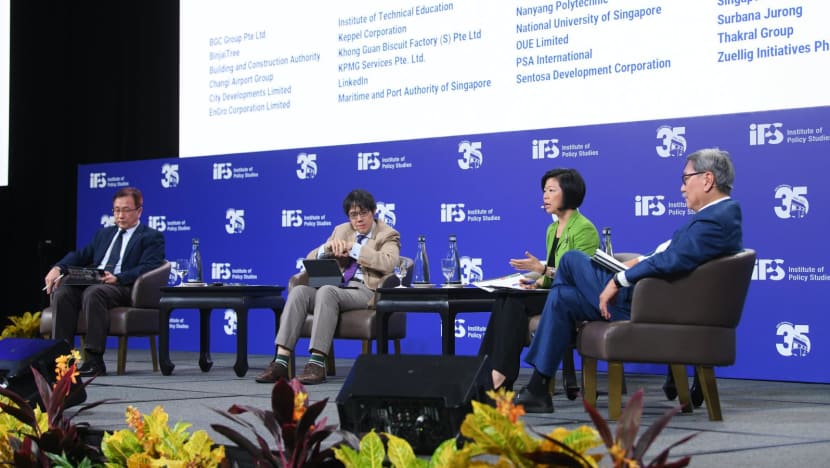SINGAPORE: Should Housing and Development Board (HDB) flats be allowed to be used as an investment?
This was one of the main topics during a panel discussion on housing at the Institute of Policy Studies (IPS) 35th anniversary conference on Monday (Jun 12).
During the panel, Associate Professor Walter Theseira from the Singapore University of Social Sciences’ School of Business noted that housing was a favourable method of accumulating wealth among Singapore households, given the relatively low cost and risk involved.
Over the last 60 years, he said generations of Singaporeans have experienced a huge upgrade in the quality of housing, and enjoyed significant wealth accumulation through ownership of HDB flats and private property.
However, this has set up expectations which are not sustainable, he said.
“Singaporeans want affordable and accessible housing, but they want housing to be ... their aspiration to wealth accumulation,” he said.
“Policy cannot actually meet both of these objectives simultaneously and arguably, because of this as well, housing wealth is increasingly a source of inequality and it’s also very hard to monetise for retirement.”
To "de-link" housing and investment, he gave a few suggestions, which include de-emphasising housing wealth accumulation through adjusting the tax system.
Pointing out that the current tax system favours housing investment, he said the government could consider reducing tax privileges for housing, or taxing housing capital gains.
Other suggestions include shifting away from a capital purchase subsidy system to subsidising the use of housing and broadening access to desirable public housing.
While the Prime Location Public Housing (PLH) model, which was launched in 2021 to build HDB flats in central locations, shows “great promise” in dealing with some of these thorny issues, Assoc Prof Theseira said more needs to be done.
Meanwhile, Senior Minister of State for National Development and Foreign Affairs Sim Ann reiterated that home ownership remains a key focus for public housing but added that there is some flexibility such as using flats as home offices or renting out rooms to tenants.
“The government sees no reason to prevent flat prices from appreciating in line with general economic conditions, because the benefits accrue to home owners but we consider volatile price fluctuations to be undesirable,” she said.
“We need to minimise distortions, such as windfall effects and, very importantly, subsidies and grants must be at a level that Singaporean taxpayers can afford over the long term,” she added.
